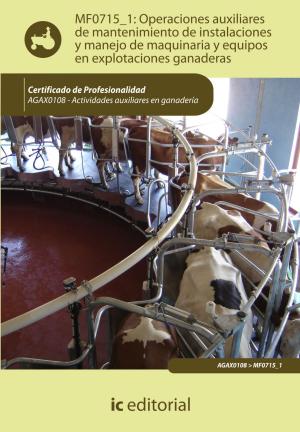Adventures in Urban Bike Farming
Nonfiction, Sports, Cycling, Science & Nature, Technology, Agriculture & Animal Husbandry| Author: | Kollibri terre Sonnenblume | ISBN: | 9780986188152 |
| Publisher: | Kollibri terre Sonnenblume | Publication: | December 13, 2015 |
| Imprint: | Smashwords Edition | Language: | English |
| Author: | Kollibri terre Sonnenblume |
| ISBN: | 9780986188152 |
| Publisher: | Kollibri terre Sonnenblume |
| Publication: | December 13, 2015 |
| Imprint: | Smashwords Edition |
| Language: | English |
Equal parts historical document, confessional memoir and social critique, this book tells the story of “Sunroot Gardens,” a bicycle-based urban farming operation that the author founded and cultivated in Portland, Oregon, in the early 2000’s. Made famous by the local media—including the Willamette Week, Sellwood Bee, Portland Monthly, KBOO, Oregonian and In Good Tilth—Sunroot Gardens blazed trails and pushed boundaries. The text is drawn from my voluminous writings at the time, supplemented with freshly composed narrative and commentary. A must-read for anyone concerned about our collective agricultural future and the role that urban farming could play in it.
This digital version features over 100 color photographs.
From the Introduction:
Portland, Oregon, between 2004 and 2010 was in transition. Of course, no city is static, and each one is always between phases that are often accurately seen only in retrospect, but the “City of Roses” in that period was a particular place in a particular time that made it especially fertile ground (no pun intended) for the urban farming experiment known as Sunroot Gardens.
Passing away was “Little Beirut,” a city given that nickname by George H. W. Bush’s advisors in the early 1990’s because of the energetic protests the President faced there. This Portland was a center of unabashedly leftist politics but was also a homely, low-rent backwater that was perennially overshadowed by its more urbane and glamorous siblings, Seattle to the north, and San Francisco to the south. “Little Beirut” was the city I hoped to find when I moved to Portland in early 2001, hot on the heels of the explosive anti-WTO protests in Seattle in late 1999. I immersed myself in political activism, primarily Indymedia and forest defense. Indymedia was a global network of autonomous alternative media centers based in different cities, including Portland, where the atmosphere led to a particularly dynamic effort. During these years, I met and collaborated with hundreds of people, many of whom became supporters of my urban farming in part due to the reputation I had earned as dedicated and hard working.
As is told in the chapter, “The Media Blitz,” local publications from newsprint entertainment weeklies to glossy lifestyle magazines took an interest in Sunroot Gardens and in other, similar projects, and made a meme of “urban farming.” People in Portland who were hungry for creative solutions—especially ones with the stamp of “cool”—proved enthusiastic to lend their help. Resources flowed in, in the form of money, land, labor and more. Thanks, ironically, to corporate media, I was given what I needed to put my ideas into action.
But by 2010, “urban farming” as a meme had lost its luster and the practice itself had been relegated to the role of one more quirky thing that existed to “keep Portland weird.” It was assumed, incorrectly, that urban farming had become an established, successful endeavor and that no more attention needed to be paid to it. This was the final year of Sunroot’s operations.
The Portland that emerged next was “Portlandia,” a caricature of itself, a destination no longer for scrappy activists—or starving artist, their sometimes partners-in-crime—but for the app-driven digerati, with their oh-so-refined tastes and non-confrontational blue-state politics. Rents skyrocketed, hipsters pushed out hippies, and by 2015, Portland was the most quickly gentrifying city in the U.S.A. In short, no longer a hospitable place for unconventional experiments.
In retrospect, it is clear that Sunroot Gardens, took advantage of a particular time and place for as long the period lasted, neither arriving too early nor leaving too late (like an engaging work of fiction).
Equal parts historical document, confessional memoir and social critique, this book tells the story of “Sunroot Gardens,” a bicycle-based urban farming operation that the author founded and cultivated in Portland, Oregon, in the early 2000’s. Made famous by the local media—including the Willamette Week, Sellwood Bee, Portland Monthly, KBOO, Oregonian and In Good Tilth—Sunroot Gardens blazed trails and pushed boundaries. The text is drawn from my voluminous writings at the time, supplemented with freshly composed narrative and commentary. A must-read for anyone concerned about our collective agricultural future and the role that urban farming could play in it.
This digital version features over 100 color photographs.
From the Introduction:
Portland, Oregon, between 2004 and 2010 was in transition. Of course, no city is static, and each one is always between phases that are often accurately seen only in retrospect, but the “City of Roses” in that period was a particular place in a particular time that made it especially fertile ground (no pun intended) for the urban farming experiment known as Sunroot Gardens.
Passing away was “Little Beirut,” a city given that nickname by George H. W. Bush’s advisors in the early 1990’s because of the energetic protests the President faced there. This Portland was a center of unabashedly leftist politics but was also a homely, low-rent backwater that was perennially overshadowed by its more urbane and glamorous siblings, Seattle to the north, and San Francisco to the south. “Little Beirut” was the city I hoped to find when I moved to Portland in early 2001, hot on the heels of the explosive anti-WTO protests in Seattle in late 1999. I immersed myself in political activism, primarily Indymedia and forest defense. Indymedia was a global network of autonomous alternative media centers based in different cities, including Portland, where the atmosphere led to a particularly dynamic effort. During these years, I met and collaborated with hundreds of people, many of whom became supporters of my urban farming in part due to the reputation I had earned as dedicated and hard working.
As is told in the chapter, “The Media Blitz,” local publications from newsprint entertainment weeklies to glossy lifestyle magazines took an interest in Sunroot Gardens and in other, similar projects, and made a meme of “urban farming.” People in Portland who were hungry for creative solutions—especially ones with the stamp of “cool”—proved enthusiastic to lend their help. Resources flowed in, in the form of money, land, labor and more. Thanks, ironically, to corporate media, I was given what I needed to put my ideas into action.
But by 2010, “urban farming” as a meme had lost its luster and the practice itself had been relegated to the role of one more quirky thing that existed to “keep Portland weird.” It was assumed, incorrectly, that urban farming had become an established, successful endeavor and that no more attention needed to be paid to it. This was the final year of Sunroot’s operations.
The Portland that emerged next was “Portlandia,” a caricature of itself, a destination no longer for scrappy activists—or starving artist, their sometimes partners-in-crime—but for the app-driven digerati, with their oh-so-refined tastes and non-confrontational blue-state politics. Rents skyrocketed, hipsters pushed out hippies, and by 2015, Portland was the most quickly gentrifying city in the U.S.A. In short, no longer a hospitable place for unconventional experiments.
In retrospect, it is clear that Sunroot Gardens, took advantage of a particular time and place for as long the period lasted, neither arriving too early nor leaving too late (like an engaging work of fiction).















